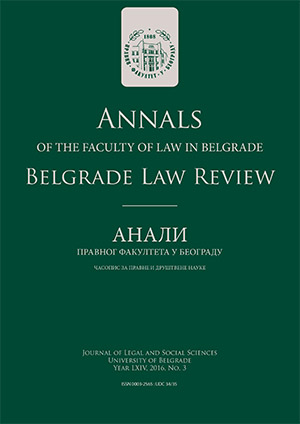RELIGIOUS EDUCATION IN PUBLIC SCHOOLS AND RELIGIOUS IDENTITY IN POST-COMMUNIST SERBIA
RELIGIOUS EDUCATION IN PUBLIC SCHOOLS AND RELIGIOUS IDENTITY IN POST-COMMUNIST SERBIA
Author(s): Sima AvramovićSubject(s): Post-Communist Transformation, Sociology of Education, Sociology of Religion
Published by: Правни факултет Универзитета у Београду
Keywords: Secularity; Toledo Guiding Principles; Models of Religious Education; Intuitive Religious Identity; Cognitive Religious Identity;
Summary/Abstract: The author analyses types of religious education in European and Serbian state-run schools searching for an innovative approach to existing classifications. He suggests four criteria to differ and categorize types of religious education in public schools, claiming that the actual taxonomy is often insufficient, inconsistent or perplexed (having usually been based upon one or two elements). He proposes categorization which encompasses point of view and interests of tax payers, of the politics, of the pupils and of the religious teachers. More criteria could lead to a better assessment of particular system of religious education. He also suggests that, apart from usual categorization in confessional and non-confessional religious education, it would be useful to introduce categories like “mostly confessional” and “mostly non-confessional”, as clear-cut models are very rare. In addition to this he offers arguments why “cognitive” type of religious education would be more proper label instead of “non-confessional”.
Journal: Анали Правног факултета у Београду
- Issue Year: 64/2016
- Issue No: 3
- Page Range: 25-56
- Page Count: 32
- Language: English

